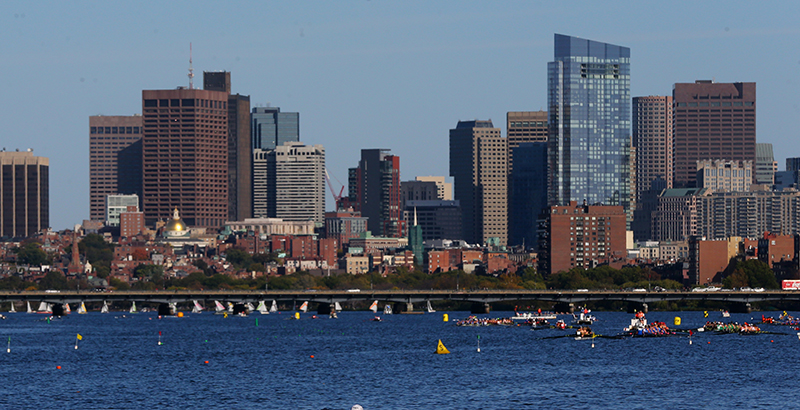Morton: Combining Summer School & Summer Camp — How a Group of Boston Nonprofits Is Reimagining Public Education

Get essential education news and commentary delivered straight to your inbox. Sign up here for The 74’s daily newsletter.
For so long, educators and youth advocates have dreaded summer slide, the deterioration of skills over summer, when children without access to enriching activities fall further behind their peers. This is the year to change that. The pandemic is widening the racial equity gap for children of all socio-economic backgrounds — it’s the perfect opportunity to extend the traditional school year and have academic enrichment this summer that can close this persistent divide.
Picture this: With all the disruption of this COVID-plagued school year, students could get another several weeks of learning, probably outside, in camp-like settings, where they could creatively work on math, science, writing, reading and the arts, get meals and snacks every day and engage in physical activity. It’s the right time and the right solution for bridging the gap, particularly for Black and Latino students.
It’s also a long-needed solution for working parents. Many have struggled to keep their jobs and paychecks during the last year. So, come summer, if students go to vigorous, engaging programs to catch up or continue learning, then their parents can work with less worry about their children. That valuable extra time can make up for what was missed amid the frenzy of on-again, off-again remote learning, hybrid classrooms and in-person disruptions. With about 20 percent of Boston public school students not even logging into school, there is a large population that would benefit from more structured time.
My organization, YMCA of Greater Boston, along with our partner groups — Inquilinos Boricuas en Acción (IBA), The BASE and Latinos for Education — have a model for this and believe it could be the beginning of a much-needed reimagining of education in Boston.
We actually came together before the pandemic, encouraged by local philanthropists to take a “moonshot” approach to more equitable education in the city by forging a collaboration between nonprofits and the school district. But when the pandemic struck, our Community Learning Collaborative had a chance for a test run.
Each collaborative partner is guided by a leader of color who has demonstrated a longstanding commitment to education, youth development and community engagement. We share our talents, expertise and resources to provide comprehensive and equitable learning opportunities for low-income students and families in Boston.
We are currently running 12 equity pods, organized by age and grade level, with 125 students spending the day with an educator in a community-based setting within walking distance of home. Each location is equipped with high-speed Internet, laptop computers for those who don’t have them and headsets so students can focus on their classwork with their Boston Public School teachers. We know from students, parents, teachers and even grandparents that young people are excelling and thriving. Now, we want to keep going and take the lessons we are learning into summer with fun, academically enriching programs at facilities run by the YMCA, The Base and IBA.
We are seeing the impact of high-quality academic support, social-emotional development, health and wellness, recreation, arts, movement and food in a fun and engaging environment. Students, parents and teachers report that they like the pods and students are excelling, keeping up with their schoolwork and enjoying learning. Smaller settings with individualized attention are working to meet students’ needs. Our whole-child approach includes culturally appropriate curricula, taught and supported by leaders and teachers of color, which contributes to positive self-identities for children of color. Students see themselves and their experiences reflected by the caring adults around them. We are also combating food insecurity and hunger by providing healthy and nutritious meals and snacks.
To gather data, we have brought in Bellwether Education Partners survey students, parents and teachers, so we have a complete analysis of how our pods are working and what we can learn from them.
The COVID-19 pandemic has elevated disparities experienced by low-income Black and Latino children. These inequities often result from limited access to academic, enrichment and out-of-school opportunities available to children of wealthier households. As a result, Black and Latino children are less likely to graduate from high school, attend college, secure gainful employment and accumulate wealth — all outcomes that can be mitigated with equitable access to educational opportunities. Children’s potential is equally distributed, but opportunity is not.
We are reimagining public education in Boston. Our resolve is fueled by the fierce urgency of now and knowing that if society fails to educate all of its children, then it has failed all of its children.
James Morton is president and CEO of the YMCA of Greater Boston. Community Learning Collaborative leaders Amanda Fernandez, CEO and co-founder of Latinos for Education; Robert Lewis, president and founder of The BASE; and Vanessa Calderón-Rosado, executive director of Inquilinos Boricuas en Acción, also contributed to this essay.
Get stories like these delivered straight to your inbox. Sign up for The 74 Newsletter

;)